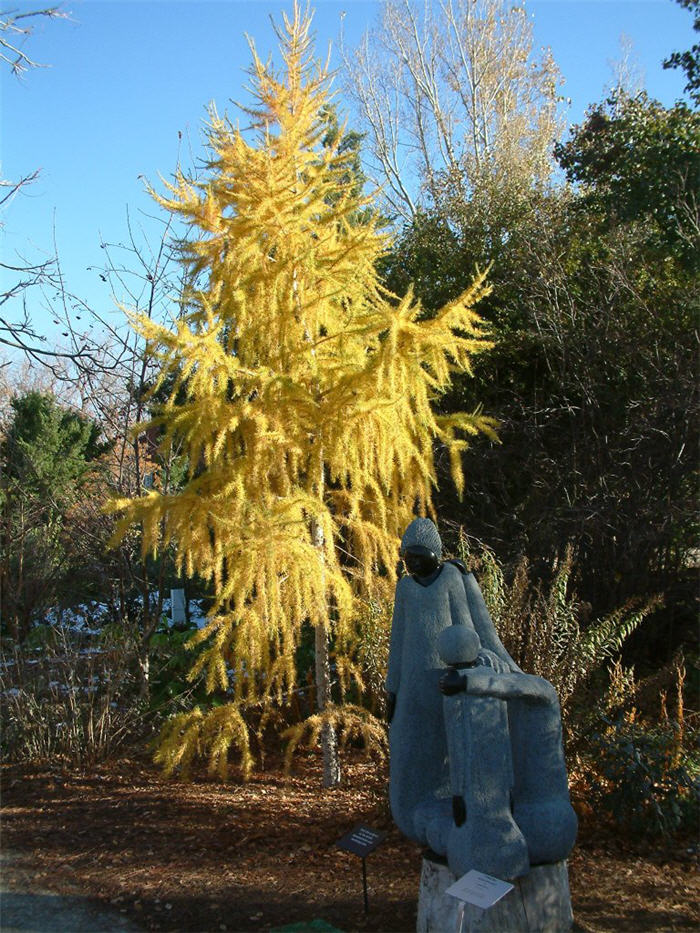| Botanical Name: Larix decidua | |
| Common Name: European Larch |

-
Anatomy
-
Culture
-
Design
Plant Type
Tree, Conifer
Height Range
60-100'
Flower Color
n/a
Flower Season
n/a
Leaf Color
Green
Bark Color
Brown, Grey, Red
Fruit Color
Brown
Fruit Season
Fall, Persistent
Sun
Full
Water
High
Growth Rate
Slow
Soil Type
Clay, Loam
Soil Condition
Average, Rich, Well-drained, Moist
Soil pH
Acid, Neutral
Adverse Factors
n/a
Design Styles
Formal, Japanese, Woodland
Accenting Features
Fall Color, Specimen
Seasonal Interest
Summer, Fall
Location Uses
Background, Shrub Border
Special Uses
Screen, Shade Tree
Attracts Wildlife
n/a
Information by: Stephanie Duer
Photographer:
Photographer:
-
Description
-
Notes
European Larch is a uniques tree in that it is a deciduous conifer. It can grow 60 feet or tall, and about 20 or more feet wide. It has graceful horizontal branches that have smaller, weeping branchlets. Needles emerge in the spring and are a soft green; autumn color is a brilliant yellow before needles drop. Pinecones are small and brown; bark is greyish brown with elongated plates revealing an inner red bark as tree matures. Useful as a specimen to scree a view.
Plant in full sun in well drained soils, but will tolerate poorly drained soils. Slightly acid to neutral soils. Follow a regular watering schedule during the first growing season to establish a deep, extensive root system. Watering can be reduced after establishment.